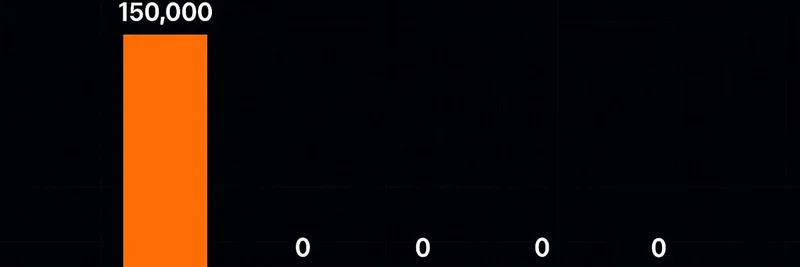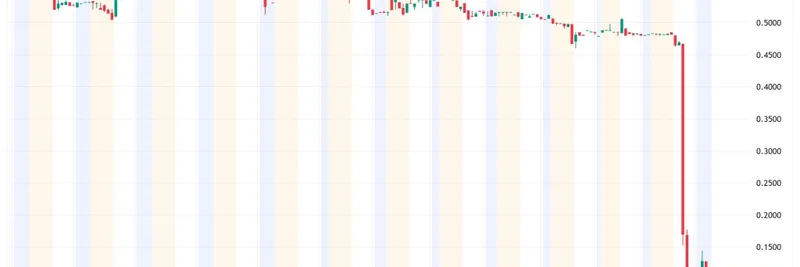Crypto has always been a wild ride, full of overnight millionaires and groundbreaking tech. But as someone who's edited stories on everything from Bitcoin's rise to the latest meme coin frenzy, I've seen firsthand how the industry struggles with a bizarre imbalance: insane rewards for even average talent, yet a shocking lack of top-tier pros jumping in. A recent thread by @kelxyz_ on X nailed this point perfectly, sparking conversations about why the best minds are still flocking to traditional tech instead of blockchain's golden opportunities.
The thread kicks off with a bold observation: crypto offers the most skewed reward-to-talent ratio anywhere. Whether you're a trader, developer, business development expert, or product manager, hitting the 90th percentile in skills can net you astronomical returns compared to other fields. And if you're in the 99th percentile? You could launch a project that skyrockets from zero to $50 billion in value in just two years. That's not hyperbole—think of the explosive growth in ecosystems like Solana or even meme token launches that capture global attention.
But here's the kicker: despite this "gigantic golden carrot," as @kelxyz_ puts it, real talent isn't biting. Instead, they're begging for spots in outdated tech VC circles in San Francisco, chasing illiquid shares in companies backed by what the thread cheekily calls "Technodiddys." Why? It boils down to status. Crypto's reputation is still in the dumps—associated with scams, volatility, and regulatory headaches—while the "pristine Ivory Towers" of SF tech ooze prestige.
This status obsession overrides even the allure of global cryptographic markets. People worldwide are choosing the social clout of AI and big tech over crypto's raw financial upside. The thread even speculates on a what-if scenario: if Elon Musk hadn't blocked an OpenAI token back in 2018, AI might have gone crypto-native, flipping Bitcoin's market cap during the 2024 AI hype. Imagine "AI" as a ticker valued higher than Ethereum's peak of $600 billion— that could have reshaped everything.
Tying It to Meme Tokens: Quick Wins, But Shallow Talent Pool
At Meme Insider, we focus on meme tokens because they're the ultimate litmus test for crypto's incentive structure. These coins often explode based on viral hype rather than deep tech, embodying that lopsided reward system. A clever meme launch can turn a basement dev into a multimillionaire overnight, but it rarely attracts the Steve Jobs-level builders the industry craves. As one reply in the thread notes, crypto draws "max extractors"—folks great at squeezing value but not necessarily innovating for the long haul.
Replies to the thread echo this. @tubergen argues that while crypto has tremendous talent in value extraction, true visionaries need more than money; they want meaningful problems to solve. Blockchains excel in specific areas like decentralized finance or NFTs, but their product-market fit remains narrow, making it tough to pull in diverse expertise. Another user, @0xJ010, sums it up: stated preference is generational wealth, but revealed preference is social status.
In the meme token world, this plays out dramatically. Projects like Dogecoin or newer ones on Solana show how low barriers to entry create quick riches, but they also amplify the noise. Talented devs might dabble in memes for fun or profit, but they're not committing full-time because the status isn't there. Instead, they're building in AI, where solving "future of the world economy" problems feels nobler than pumping a frog-themed coin.
What Could Change the Game?
The thread hints at untapped potential in areas like zero-knowledge proofs (ZK), where some of crypto's best minds are quietly building. @leohenkels points out that ZK projects have top talent but lack the valuations to match—yet. If meme tokens could integrate more advanced tech like ZK for privacy or scalability, they might evolve beyond pump-and-dump schemes, attracting serious builders.
But ultimately, shifting crypto's rep is key. As regulations clarify and real-world adoption grows—think tokenized assets or decentralized social media—the status gap could close. For now, though, the thread reminds us: humans aren't just rational profit-maximizers; we're status-seeking creatures.
If you're in the meme token space, this is a wake-up call. Focus on building communities and utility that rival big tech's allure, not just chasing pumps. Check out the full thread here for more insights, and stay tuned to Meme Insider for breakdowns on how these dynamics play out in the latest launches.
Key Takeaways for Blockchain Practitioners
- Rewards vs. Reality: Crypto's high returns are real, but they favor opportunists over innovators without broader incentives.
- Status Matters: Overhaul crypto's image to compete with AI and tech giants for talent.
- Meme Token Angle: Use viral mechanics to experiment, but layer in tech to retain top devs.
- Future Outlook: Watch for crossovers like AI-crypto hybrids that could finally tip the scales.
As we build out our knowledge base at Meme Insider, threads like this help us understand the bigger picture. Whether you're trading memes or coding smart contracts, recognizing these talent dynamics can sharpen your edge in this chaotic market.


